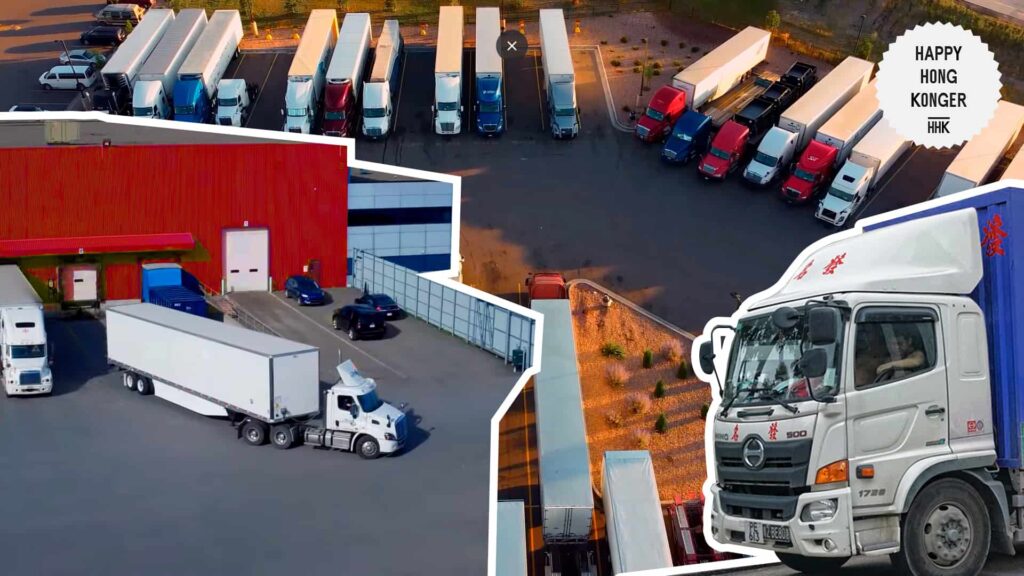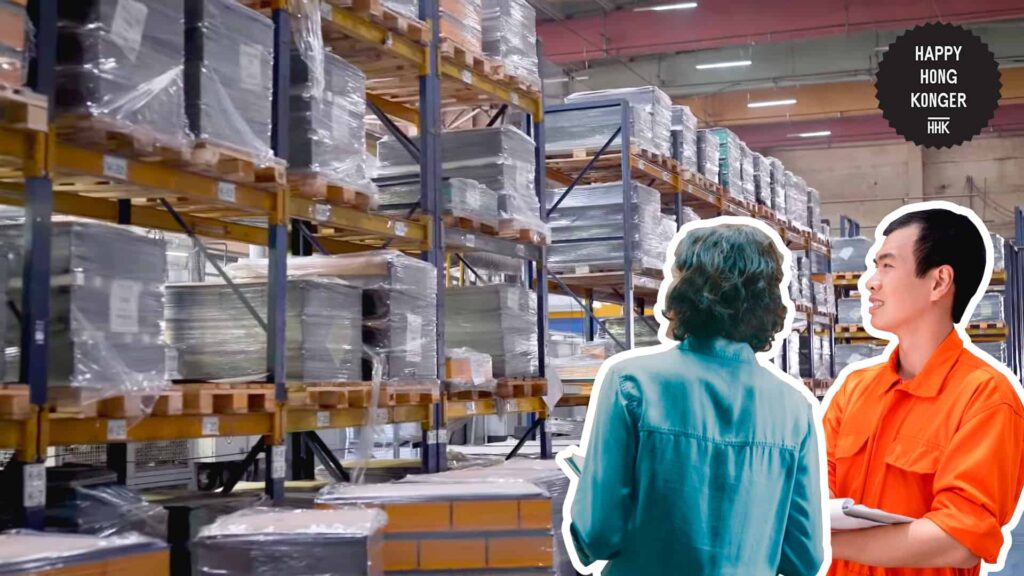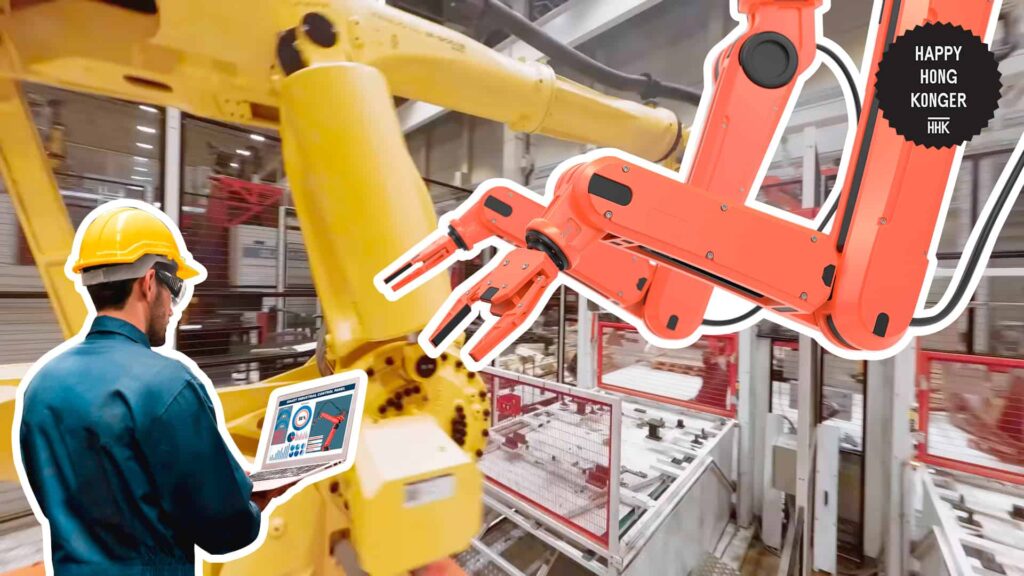Categories > Guides and Tips

Top 8 Profitable Businesses to Start in Hong Kong 2024
- Hospitality and Tourism Business
- Casual Restaurant or Bar
- Small Travel Agency
- E-commerce Business
- Wholesale E-commerce
- Dropshipping
- Logistics and Transportation
- Local Courier/Delivery Services
- Warehousing
- Technology and Innovation
- Artificial Intelligence (AI) and Robotics Development
- Website Development Agency
Now’s a great time to kick off a business in Hong Kong!
You see, in the third quarter of 2023, the city’s economy bounced back, resulting in a noteworthy Real Gross Domestic Product (GDP) year-on-year increase of 4.1%. This surge opens up even more doors of opportunity for savvy entrepreneurs.
Are you ready to seize them? You’ve come to the right place because today, we’ll go over the top potential business ideas you can set up in Hong Kong, along with vital details of each, including estimated startup costs, average net profit margin, and possible Return on Investment (ROI) turnaround time.
Hospitality and Tourism Business

Businesses in the hospitality and tourism industry in Hong Kong are profitable because they have a substantial customer base to cater to. As of 2023, the local population in Hong Kong is 7.5 million, while the population from the Guangdong-Hong Kong-Macao Greater Bay Area (GBA) is 86 million, so there are tons of potential customers.
Aside from locals, Hong Kong also receives around 34 million visitors every year, so the hospitality and tourism business offers a range of thriving sectors, including food, accommodation, travel, attractions, and entertainment.
Below, we’ll give you an overview of some profitable business sectors under hospitality and tourism.
Casual Restaurant or Bar

Estimated Startup Cost: HK$ 950,000 to HK$ 1,500,000
Average Net Profit Margin: 6% to 9%
Estimated ROI turnaround: At least 3 to 5 years
Hong Kong is one of Asia’s top culinary destinations, so it offers a robust market for the restaurant, bar, and club business. While food and drinks are available at home, many people prefer spending their leisure time and disposable income to socialize, enjoy good food, and discover new spots.
However, before starting this business, you need to get a General Restaurant License from the Food and Environmental Hygiene Department (FEHD). Meanwhile, you also need to obtain other licenses if you want to sell liquor on the premises, prepare bakery products, use an open area for al fresco dining, and more.
Small Travel Agency

Estimated Startup Cost: HK$200,000 to HK$ 500,000
Average Net Profit Margin: 10% to 15% Estimated ROI turnaround: At least 2 to 3 years
Hong Kong’s tourism industry has consistently been a major driver of the city’s economic growth. In this industry, travel agencies are the forefront players.
Running a travel agency can be a real money-maker if you can adapt and stay in sync with new trends. For example, since most people nowadays tend to do and find everything online, setting up a small travel agency that offers an easy online travel booking is more favorable.
Of course, one of the major hurdles a small travel agency may face in this industry is the competition from large conglomerates. These big players may have strong marketing strategies and have been in business for a long time, so the competition will be harsh.
However, you can improve on areas that many people complain about in big travel agencies – customer support and amenities/benefits that come with reservations. If you play your cards right, you can capitalize on certain trends and come up with profitable areas and unique updates to make you stand out from the competition.
E-commerce Business

Getting into the e-commerce business is a good starter for new entrepreneurs because you can kick things off solo. You can also make the most of Hong Kong’s simple and low tax regime for businesses and individuals.
Apart from that, these types of businesses are more accessible than setting up a traditional business because you don’t need a physical location, so you don’t have to cash out a substantial amount of money for capital.
But, of course, this isn’t everyone’s jam because you have to invest in yourself, pick up valuable technical skills, and build a good social network to market your services.
Due to digitalization, corporations, companies, online retailers, and even independent freelancers require e-commerce services to showcase, sell, and buy products and services online, so there are loads of chances to showcase your skills.
In 2022, the expected revenue for e-commerce in Hong Kong was projected to reach $22.23 billion, while last January 2023, e-commerce accounted for around 8.2% of Hong Kong’s total retail sales.
What’s great about the e-commerce sector is that once you’ve got a bunch of regular clients, you can amp up your cash flow and handle big and high-paying clients.
Wholesale E-commerce

Estimated Startup Cost: HK$ 50,000 to HK$100, 000
Average Net Profit Margin: 7% to 10%
Estimated ROI turnaround: At least 2 to 3 years
Wholesale e-commerce or wholesaling is essentially the intermediary business-to-business (B2B) e-commerce between a manufacturer and a distributor or retailer. This traditional B2B e-commerce typically helps in selling products in bulk and at a discount.
The advantage of launching a wholesale e-commerce store is that your sales happen online and not in a physical warehouse or shop, so it’s an excellent way to cut costs.
Meanwhile, the service you can offer is simple if you have the right skills. You just need to assist merchants with their large or small-scale wholesale orders by automating the sign-up process, hunting specific pricing and discounts for bulk orders, and streamlining the checking-out process.
In short, what you’ll offer in this business is “convenience.” You see, opting for wholesale e-commerce is way quicker than navigating through various physical stores and then queuing up for checkout and delivery.
Dropshipping

Estimated Startup Cost: HK$ 1,000 to HK$ 5,000
Average Net Profit Margin: 15% to 20%
Estimated ROI turnaround: 6 to 12 months
Considering a small-scale e-commerce venture? We suggest you try handling a dropshipping platform.
Through dropshipping e-commerce, you don’t need your own store or business because you just need to sell other people’s goods and take a cut for yourself. Plus, you can sell items without having them in stock, so you can save yourself from inventory hassles and focus on sales and customer support.
All in all, you will be the middleman between the customer and the business or a third-party supplier that sells the product.
Logistics and Transportation

Mordor Intelligence predicts that the logistics and transportation industry in Hong Kong is projected to hit a whopping market size of $21.40 billion in 2024. It’s also among the main economic pillars of Hong Kong, so we can say that it’s a fairly profitable industry that’s worth exploring.
Trading, logistics, and transportation go hand in hand in the business game. In a nutshell, trading revolves around the process of buying and selling products, while logistics and transportation involve handling the movements of products from buyers to sellers. To ensure seamless transactions, a trading venture requires good logistic and transportation arrangements.
However, the logistics and transportation business is not solely focused on the movement of goods, especially if international trade is involved. If you accept international trades, you’ll also be handling multi-modal transportation and paperwork that comes with customs clearance and freight.
Local Courier/Delivery Services

Estimated Startup Cost: HK$ 100,000 to HK$ 300,000
Average Net Profit Margin: 10% to 20%
Estimated ROI turnaround: 1 to 2 years
The courier and delivery service market has been on fire in recent years because more and more customers prefer speedy and doorstep delivery.
You can start small and build your way up with a local courier or delivery service business. First, you’ll need to find small businesses in your local area, determine your niche, and reach out to the ones that need help in delivering their products around the city.
To launch your delivery service business, you will need a vehicle (cargo van, pickup truck, or box truck), a dolly or low cart, a separate phone for business-related calls, and a few good employees. Of course, you shouldn’t overlook the legalities and check the requirements, permits, and business licenses you need.
Warehousing

Estimated Startup Cost: HK$ 100,000 to HK$ 400,000
Average Net Profit Margin: 5% to 15%
Estimated ROI turnaround: 1 to 2 years
Warehousing is an in-demand business in Hong Kong because many independent contractors and small business owners don’t have storage space for their products.
For example, a direct-to-customer e-commerce retailer wants to offer a variety of goods and products, so a physical storage space is one of their priorities. The same goes with wholesale retailers who require a warehouse for their bulk orders.
As you can see, warehousing is a vital process in supply chain management, so the demand for this business is high.
For you to save more on startup costs, it would be best to find your niche and choose the products you can accommodate, then determine the building size you need. You see, putting up a huge warehouse facility is extremely expensive and can be impractical if you don’t know your target market.
Technology and Innovation

Hong Kong is definitely a thriving hub for the tech sector.
According to the Global Innovation Index, Hong Kong’s technology and innovation industry, along with that of Shenzhen and Guangzhou, ranked second worldwide in 2023.
Due to the opportunities brought by the development of the Guangdong-Hong Kong-Macao Greater Bay Area, the city is set to further capitalize on the research and development of its Innovation and Technology (IT) sector and infrastructure.
That’s why if you want to access Hong Kong’s rich market, diving into the tech industry is the best way to go.
Artificial Intelligence (AI) and Robotics Development

Estimated Startup Cost: HK$ 1, 300,000 to HK$ 5,000,000
Average Net Profit Margin: 10% to 30%
Estimated ROI turnaround: 2 to 5 years
Artificial Intelligence (AI) is definitely a key factor in automation and connectivity.
In Hong Kong, the AI and Robotics sector is not limited to the technology business because it’s now adapted by various businesses, including finance, healthcare, manufacturing, logistics, entertainment, and more. If you have the budget, there are plenty of opportunities to explore this type of business.
The AI Industry is certainly expensive because you have to deal with computer hardware expenses, prototype development, software development, and even maintenance, depending on what you want to showcase.
Of course, it’s also important to have the right people for this business. You’ll need to hire professionals with proficiency and skills in developing AI-driven solutions in domains including AI algorithms, machine learning, robotics engineering, and more.
Here are some AI-based business ideas we recommend:
- Customized e-learning platform
- Personal lifestyle/health monitoring
- AI-based content creation
- Automated financial advising
Website Development Agency

Estimated Startup Cost: HK$50,000 to HK$ 100,000
Average Net Profit Margin: 15% to 25%
Estimated ROI turnaround: 6 to 12 months
As the e-commerce industry continues to boom in the city, the need for website developers is also rapidly growing.
In Hong Kong’s dynamic business scene, having an efficient and optimized website is non-negotiable. A well-designed and developed website can be a total game-changer because it helps draw customers in, build a solid online presence, and make brands popular.
If you plan to put up a virtual website development agency by yourself, you need to have a good portfolio. You can start by offering basic front-end and back-end development for specific clients like online retailers and small businesses.
Now, if you have the budget to hire several professionals to create software and applications for a website and can handle advanced coding and web design, then you can accept big-scale projects and earn more.
**Note that the estimated startup cost is just a rough total for rent, utilities, labor cost, cost of goods, marketing expenses, etc. Of course, the total startup cost for putting up a certain business can still depend on a wide range of factors.





